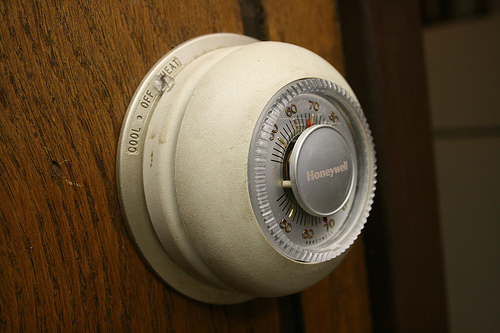NOTE: If your landlord lives in your building, see the “Exceptions” note on the right side of this page.
Lockouts from rental any unit are illegal in the City of Chicago.
What is a lock-out?
Its an attempt to force you out of your apartment by:
- Changing or plugging the locks on any of your doors;
- Blocking an entrance to your apartment;
- Removing one of your apartment doors or windows;
- Shutting off any of your utility services; or
- Removing your personal property from the apartment.
Lock-outs are against the law, and your landlord can be arrested and fined for locking you out of your apartment.
Can I be locked-out if I don’t pay rent?
No. Your landlord can evict you for non-payment of rent, but he/she must first file a lawsuit against you, win this lawsuit, and then pay the Sheriff to evict you. Your landlord cannot just lock you out of your apartment. Please refer to Leases for more information.
Can I be locked-out for any reason?
Only if you have abandoned the apartment. Your landlord, however, cannot claim that you have abandoned your apartment unless:
- You tell your landlord that you are leaving and not coming back;
- Everyone in your household removes their personal belongings and leaves the apartment for at least 21 days, and no rent is paid for the period you are gone; or
- Everyone in your household leaves the apartment for at least 32 days and no rent is paid for the period you are gone.
What should I do if my landlord locks me out?
Call the police. If they can find your landlord they will order him/her to let you back into your apartment. Make sure you have something to show the police to prove that you reside in the apartment (such as a rent receipt, utility bill, etc.). You should also call an attorney.
What if the police will not help me?
Remind them that Special Order #01-04-03 states that they must investigate and end lock-outs. If a police officer refuses to help you, get his badge number, call your local police station, and ask to speak with the Watch Commander. If you are still unsuccessful, call MTO with that information at 773-292-4988.
Can I sue my landlord if he/she locks me out?
Yes, but you should speak to an attorney first. You can sue your landlord for two months rent or twice your actual damages (whichever is greater), plus attorney’s fees.
What is retaliatory conduct?
It is any action your landlord takes (or threatens to take) to punish you for engaging in one of the “protected activities” described below.
- Complaining to a government agency, community organization, or the news media about the condition of your apartment;
- Asking your landlord to make necessary repairs;
- Joining a tenants’ organization;
- Testifying in any court or administrative proceeding about the condition of your apartment or building; or
- Exercising any other right or remedy under law.
How might my landlord try to retaliate against me?
They might try to retaliate against you by:
- Terminating or threatening to terminate your lease agreement;
- Increasing your rent;
- Refusing to provide you with a necessary service; or
- Refusing to renew your lease agreement.
Please refer to Heat and Other Essential Services for more information. Please refer to Leases for more information.
How can I prove that my landlord’s conduct is retaliatory?
Keep a record of your “protected activities.” For instance, if you write a letter to your landlord asking him to make repairs, save the letter. Your landlord’s conduct is presumed to be retaliatory if it occurs within one year after you engaged in a “protected activity.” Your landlord may, of course, overcome this presumption by showing that he had a legitimate reason for terminating your lease, increasing your rent, etc.
Please Note: This information, published by the Legal Assistance Foundation of Chicago and the Metropolitan Tenants Organization as a public service, gives you only a general idea of your rights and responsibilities under the Residential Landlord and Tenant Ordinance and other relevant chapters of Chicago’s Municipal Code. It is meant to inform, but not to advise. Before enforcing your rights, you may want to seek the advice of an attorney who can analyze the facts of your case and apply the law to these facts.
Still can’t find the answer? Send us your questions. Please allow several days for a response.
